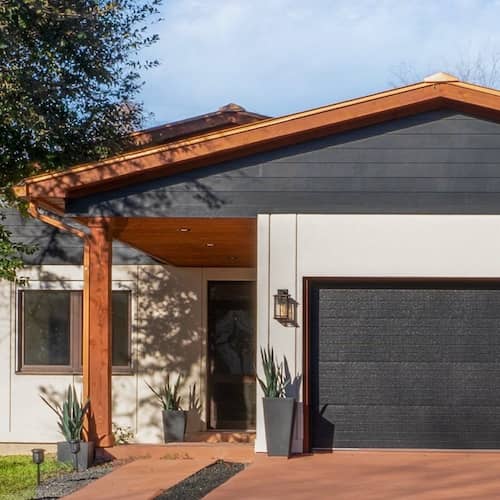How to avoid foreclosure on your home
Feb 29, 2024
•5-minute read

The prospect of foreclosure is likely every homeowner's worst nightmare. The thought of losing your house can be overwhelming, leaving you stressed and anxiously looking for ways to save your home. The good news is that you can access options to keep your home and avoid foreclosure.
From communicating with your lender early on to refinancing your mortgage, we’ll explore your options to keep your home and protect one of your most significant investments.
Refinancing ahead of a foreclosure
Depending on your situation, refinancing may be a viable option that allows you to lower your mortgage payments. The key to unlocking the opportunity refinancing can offer is to do it before missing any mortgage payments. If you’re struggling to pay your mortgage on time, consider refinancing options to lower your monthly mortgage payments and ease your financial burden.
To refinance, you’ll need to be in good financial health. Your lender will review your financial profile, including your credit score, to determine your eligibility and new mortgage rate.
Refinancing during financial hardship
For some homeowners, financial hardship can strain their budgets and lead to the worry of foreclosure. If you’re in this situation, a rate and term refinance may be the answer.
You can potentially lock in a better interest rate or extend your term, leading to a lower monthly payment. Some lenders allow borrowers to roll their refinancing costs, such as closing costs, into the loan, which reduces the upfront cost of refinancing.
5 options to help avoid foreclosure
A refinance isn’t the only available option. Let’s explore other strategies to avoid a foreclosure sale.
1. Mortgage forbearance
Mortgage forbearance occurs when your lender temporarily pauses your monthly mortgage payments. If your financial hardship is temporary, this pause on payments may provide the relief you need to get back on your feet.
Reach out to your mortgage company as soon as possible to request a mortgage forbearance agreement that temporarily suspends your payments.
This option isn’t a permanent solution to an unaffordable mortgage payment. But it can offer some breathing room to get your finances back on track.
2. Mortgage modification
A mortgage modification or loan modification changes the original terms of your mortgage. Your lender may offer a longer loan term or a lower or fixed interest rate.
Any adjustments may provide the bandwidth you need to make on-time payments comfortably. Reach out to your lender early to explore mortgage modification options. Early communication may help you steer clear of an undesirable outcome.
3. Repayment Plan
If you’ve missed a few payments, your lender may agree to a repayment plan, helping you catch up on your missed payments without the burden of making a lump-sum payment.
In most cases, a repayment plan – typically lasting less than 6 months – becomes an option after mortgage forbearance. Discuss this option with your lender as soon as possible if you’re struggling with keeping up with your payments.
4. Reinstatement
A mortgage reinstatement involves restoring your home loan after a default by paying the total past-due amount. In other words, you’ll make a lump-sum payment to cover all your missed mortgage payments to reinstate your mortgage.
Talk to your lender if you have the financial resources to pursue this option. Most lenders will be receptive to helping a borrower catch up on their missed mortgage payments. Before you make a lump-sum payment to reinstate your mortgage, get approval from your lender first.
5. Short refinance
If you owe more than your home is worth, your lender may consider a short refinance. In this case, you would receive a new mortgage for a lower amount than your outstanding balance, and the lender would forgive the remaining balance. You’ll need to provide the lender with an appraisal to verify the home’s reduced value.
A short refinance isn’t always an available option. But sometimes, a lender will decide the foreclosure process is more expensive than forgiving a portion of a loan. Approach your lender about a short refinance if you’re upside down on your home loan. Not all lenders offer this option. Rocket Mortgage® doesn’t provide short refinances.
What to do if you think you can’t stop foreclosure
If you can’t stop a foreclosure, you can still take action to minimize the financial fallout. Below are some strategies to reduce the impact of a foreclosure on your financial future.
Talk to a housing counselor
The Department of Housing and Urban Development (HUD) has counselors to help you explore your foreclosure options. The services are free or offered at a reduced cost.
With the help of a housing counselor, you may find new pathways to minimizing the impact of foreclosure or stop the process altogether.
Before you speak to a counselor, confirm that they work with a HUD-approved agency.
Short sale
A short sale requires you to sell your home. With the lender’s approval, you’ll sell the property for less than what you owe on the mortgage. When the home sells, all proceeds go directly to the lender. In exchange, the lender will likely forgive all or a portion of the remaining balance.
The key part of this process is your lender’s approval. You cannot pursue a short sale without your lender agreeing to it. While you won’t get to keep the home, you’ll avoid the detrimental impact of a foreclosure on your credit report.
Deed in lieu of foreclosure
Homeowners can also pursue a deed in lieu of foreclosure, which involves voluntarily handing over ownership of their home to their lender. Once you sign the paperwork, your lender will forgive the outstanding mortgage balance.
Like a short sale, you’ll need to leave the home if you initiate a deed in lieu of foreclosure, but this option also shields you from the devastating impact of foreclosure on your credit.
How to avoid foreclosure: FAQs
The foreclosure process can feel overwhelming. That’s why we’ve answered common questions about avoiding foreclosure to help you make informed decisions.
Can you refinance to avoid foreclosure?
It’s possible to refinance to avoid foreclosure. Refinancing can help you lock in lower monthly mortgage payments and make it easier to afford your mortgage. But if you’ve already missed several mortgage payments, finding a lender to work with will be difficult. If you want to take full advantage of refinancing, the best time is before you miss a payment.
How long is the preforeclosure process?
The mortgage loan must be delinquent for at least 120 days before a lender can begin foreclosure. Preforeclosure can last 3 – 10 months, but the exact timeline will vary by situation.
When is it too late to stop foreclosure?
In some states, it may be too late to stop a foreclosure once the lender sells the home at auction. However, in other states, homeowners can exercise the right of redemption even after the home has been sold at auction.
Can HUD help with foreclosure prevention?
If you have a Federal Housing Administration (FHA) loan, HUD offers foreclosure prevention assistance through its National Servicing Center.
The bottom line: Act early to avoid foreclosure
If you’re struggling to keep up with your monthly mortgage payments, acting fast can help you save your home.
Securing a lower monthly payment by refinancing can help ease financial strain, but you must initiate the refinance before you fall behind on mortgage payments. If you’re ready to protect your investment and your financial future, apply for a mortgage refinance today.

Victoria Araj
Victoria is a former Team Leader of editorial content at Rocket Mortgage and she held roles in mortgage banking, public relations and more in her 19+ years with the company. She holds a bachelor’s degree in journalism with an emphasis in political science from Michigan State University, and a master’s degree in public administration from the University of Michigan.
Related resources

4-minute read
Texas property tax guide for homeowners
Texas has a higher effective property tax rate than many other states. Learn about how the Texas property tax system works and what you can expect to owe.
Read more

6-minute read
New York property tax guide for homeowners
New York has a higher effective property tax rate than many other states. Learn about how New York property taxes work and how much you can expect to pay.
Read more

8-minute read
What to do after closing on a home
The paperwork has been signed and you’ve got the keys in hand. Now what? Here’s what to expect after closing on a home.
Read more